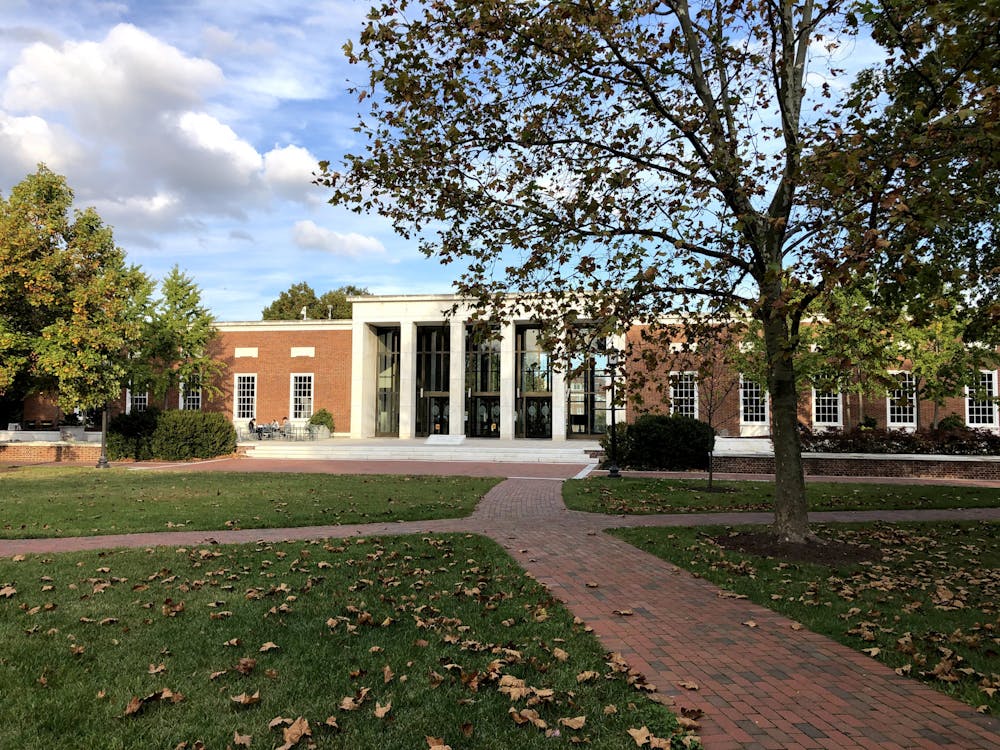It’s the beginning of a new semester at Hopkins, and the air is buzzing with excitement. This semester, buildings are back to full capacity, including jam-packed lecture halls and bustling dining areas.
This is the first semester to be completely in-person since the fall of 2019 before COVID-19 sent classes online and filled our days with Zoom calls and Panopto recordings.
Over the past couple of years, Hopkins has been at the forefront of tracking COVID-19 cases and disseminating accurate information about the virus to the public. Now that in-person classes are back, it can be tempting to believe the pandemic has ended. Unfortunately that is not the case.
The COVID-19 policies that Hopkins has implemented for this fall are almost a complete U-turn from last semester’s policies. Masking is now optional on campus. Vaccine and booster shots are still required; however, routine asymptomatic testing is no longer mandatory. If a student tests positive for COVID-19, they have to self-isolate for at least five days in their dorm until symptoms cease, not receiving off-campus housing to quarantine except in special circumstances.
The University’s policy changes follow a larger trend of easing COVID-19 restrictions at colleges across the country, in accordance with new Centers for Disease Control and Prevention (CDC) guidelines.
Yet it’s disquieting that Hopkins has relaxed its guidelines to this extent. Allowing students to return to school five days after testing positive without requiring a negative COVID-19 test could result in COVID-19 resurgences. This is especially concerning since masking is not required for all students. Schools might even face the predicament of closing temporarily as some did last year.
“All of us want a stable school year, but wishful thinking is not the strategy for getting there,” said Anne Sosin, a Dartmouth College public health researcher. “If we want a return to normal in our schools, we have to invest in the conditions for that, not just drop everything haphazardly like we’re seeing across the country.”
Her concern is matched by other experts in the field, including William Hanage, an epidemiologist at the Harvard T.H. Chan School of Public Health. Though Hanage believes the relaxed CDC guidelines are “entirely reasonable” now, he wonders whether they “will continue to be entirely reasonable given the unpredictable dynamics of the virus.”
It may not come as a surprise that, following the relaxed restrictions, there has been an uptick in COVID-19 cases. Just since the beginning of classes, over 350 students have tested positive for COVID-19. To put that into perspective, we’ve reached one-tenth of the total student COVID-19 cases from last year in just three weeks. On top of that, since testing is optional, one can only assume that the true number of positive COVID-19 cases is higher.
Now that classes are synchronous and in-person, it is not required for teachers to have online recordings to complement content taught in person. If a student gets sick or tests positive for COVID-19, there are fewer options compared to semesters prior for them to catch up. The academic pressure to attend class even when sick conflicts with public health goals. Clearly Hopkins needs to offer more support to students who fall ill.
To put it simply, the university’s COVID-19 policies aren’t doing enough to foster a safe in-person learning environment for all students. But there is an opportunity for students to step up where the university guidelines are lacking.
As the chief medical officer for the Association of State and Territorial Health Officials, Dr. Marcus Plescia, said, these guidelines represent, “an increasing focus on individuals making their own decisions about their level of risk and how they want to mitigate that risk.”
Wearing a high-quality mask, getting tested regularly and staying up to date on vaccine booster shots are all practices that will help protect yourself and others from the virus.
I hope all of you have a great semester. Stay safe!
Ritwik Raj is a sophomore from Glenville, N.Y. majoring in Molecular & Cellular Biology and Psychology.





